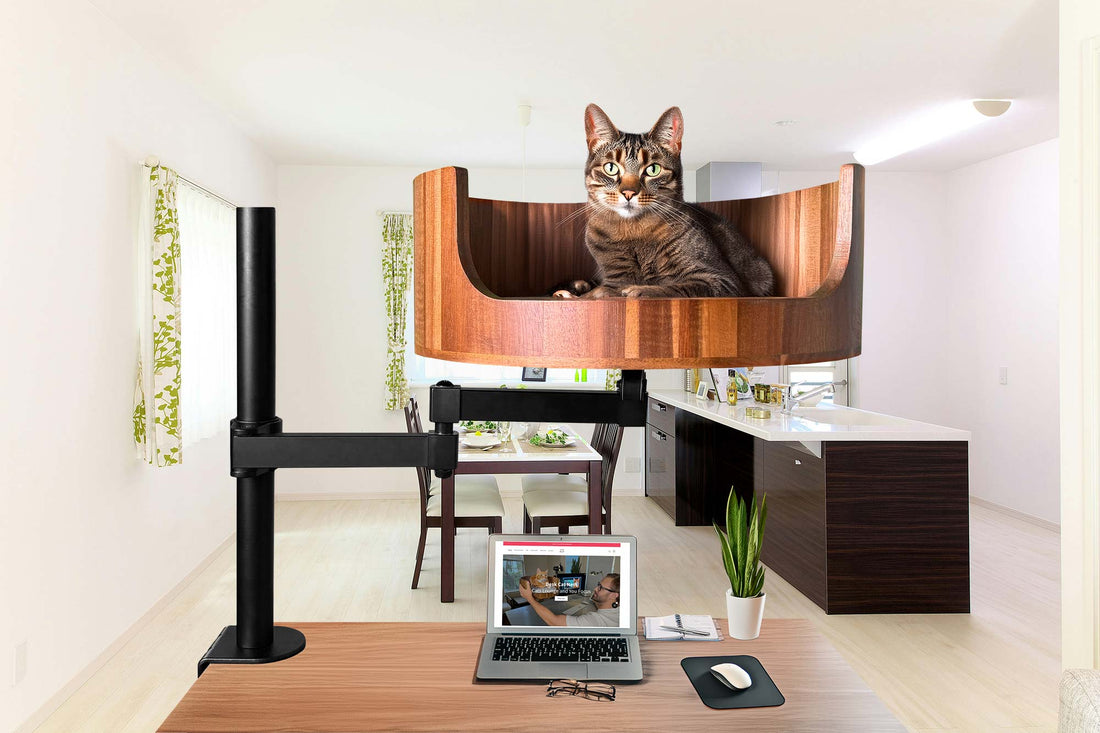
Why Does My Elderly Cat Yowl After Eating?
Share
If you have an elderly cat that has started yowling after eating, you may be wondering what could be causing this behavior. Yowling after meals can be unsettling for cat owners and may be a sign of an underlying issue that needs to be addressed. In this article, we will explore some of the potential reasons why your elderly cat may be yowling after eating and provide tips on how to help alleviate this behavior.
One possible reason for your elderly cat's post-meal yowling could be related to dental issues. As cats age, they may develop dental problems such as gum disease or tooth decay, which can make eating painful. If your cat is experiencing discomfort while eating, they may vocalize their discomfort by yowling. Another potential explanation for this behavior could be related to changes in your cat's gastrointestinal health. Digestive issues, such as constipation or irritable bowel syndrome, can cause discomfort after eating and may prompt your cat to yowl as a way of expressing their discomfort.
1. Yowling after eating in elderly cats could be due to a medical issue such as dental pain, hyperthyroidism, or kidney disease.
2. Anxiety, cognitive dysfunction, or simply seeking attention are also common reasons for yowling behavior in senior cats.
3. Consult with a veterinarian to rule out any underlying health problems that may be causing the yowling.
4. Providing a quiet and comfortable eating environment, as well as engaging in interactive play, can help alleviate stress and reduce yowling behavior.
5. Understanding the specific triggers for your elderly cat's yowling can help tailor a targeted treatment plan for a happier and healthier feline companion.
Physical discomfort
Elderly cats may yowl after eating due to physical discomfort such as tooth pain, gastrointestinal issues, or arthritis. Dental problems can make eating painful for cats, causing them to yowl in response. Gastrointestinal issues like acid reflux or constipation may also lead to yowling after meals. Arthritis can make it difficult for cats to move after eating, prompting them to vocalize their discomfort.
Anxiety or stress
Some elderly cats yowl after eating as a response to anxiety or stress. Changes in their environment, routine, or the presence of new pets or people can trigger feelings of stress in cats, leading to vocalization after mealtime. Providing a calm and quiet eating space for your cat can help reduce their anxiety and prevent yowling behavior.
Medical conditions
Underlying medical conditions such as hyperthyroidism or kidney disease can also cause elderly cats to yowl after eating. These conditions can affect your cat's appetite, digestion, and overall well-being, leading to vocalizations during or after meals. It is important to consult with your veterinarian if you suspect that your cat's yowling after eating is due to a medical issue.
Cognitive decline
Cognitive decline, commonly seen in elderly cats with conditions like feline cognitive dysfunction syndrome (FCDS), can manifest in various ways, including changes in behavior such as increased vocalization. Cats with cognitive decline may become disoriented or forgetful around mealtime, leading to yowling as a form of communication. Providing a consistent routine and environment for your cat can help manage symptoms of cognitive decline and reduce yowling behavior.
Desk Cat Nest FAQ
Why does my elderly cat yowl after eating?
Yowling after eating can be a sign of discomfort, anxiety, or even a medical issue in elderly cats. It's important to consult with your veterinarian to rule out any underlying health concerns.
How can Desk Cat Nest help with my elderly cat's yowling after eating?
Desk Cat Nest provides a cozy and comfortable space for your cat to relax and destress after eating. This can help reduce anxiety and discomfort that may be causing your elderly cat to yowl.
Is Desk Cat Nest suitable for all breeds of cats?
Yes, Desk Cat Nest is designed to accommodate cats of all breeds and sizes. It provides a secure and peaceful environment for your feline friend to rest and unwind.
How should I introduce Desk Cat Nest to my elderly cat?
It's recommended to place Desk Cat Nest in a quiet and familiar location for your cat. You can encourage your elderly cat to explore and use the nest by placing their favorite toys or treats inside.
Can Desk Cat Nest help with other behavioral issues in elderly cats?
While Desk Cat Nest is primarily designed to provide a comfortable resting space, some customers have reported a reduction in other behavioral issues such as aggression or excessive grooming. However, it's important to address these issues with your veterinarian as well.
In conclusion, providing your elderly cat with a comfortable and cozy place to eat, such as a Desk Cat Bed, can help alleviate the yowling behavior after meals. By offering a dedicated eating space that is raised off the ground and designed for their comfort, your cat is more likely to feel at ease while dining. This can lead to reduced stress and anxiety, which are often underlying reasons for excessive vocalization after eating. Additionally, the Desk Cat Bed can help promote proper digestion and overall well-being for your senior feline companion. With its benefits of comfort, stability, and convenience, the Desk Cat Bed is a valuable choice for addressing the issue of why your elderly cat yowls after eating.



















































